Viewing notes July-August 2015, part two
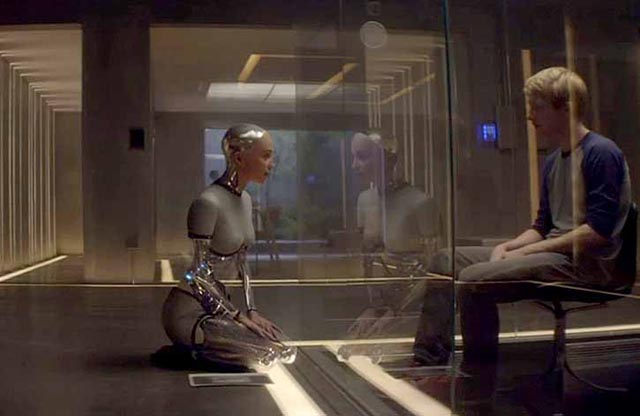
Ex Machina (Alex Garland, 2015)
Best-known for the scripts he has written for several Danny Boyle movies – The Beach, 28 Days Later, Sunshine – English novelist Alex Garland makes an excellent directorial debut with Ex Machina, one of the best, most intelligent science fiction movies to come along in years. Smartly written, superbly acted and beautifully designed, this three-character story deals with the issue of how to tell whether a machine has achieved genuine intelligence or is merely simulating consciousness. It’s always tricky to build a film, particularly a genre film, around a series of lengthy, nuanced conversations, but Garland proves himself to be a skillful director of actors and, along with cinematographer Rob Hardy, a genuine visual stylist. (Mongrel Media Blu-ray: numerous featurettes covering many aspects of the production, plus a lengthy panel session from SXSW)
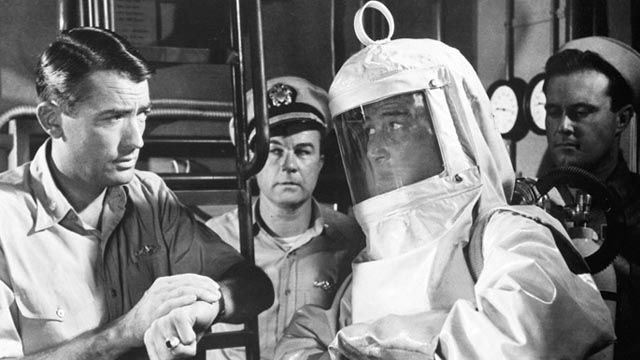
On the Beach (Stanley Kramer, 1959)
Stanley Kramer’s adaptation of the Nevil Shute novel about the end of the world was promoted as an “event” when it was released simultaneously in a number of major capital cities in 1959. Not an “event” like the upcoming new Star Wars movie – that is, not a huge commercial proposition – but rather as something socially and politically important. The liberal Kramer believed in the power of movies to change the world. Seen now more than half a century later, On the Beach looks like a large soap opera with multiple characters and interconnecting storylines playing against a backdrop of devastating nuclear war. What’s most interesting about it is the quiet stoicism with which a group of temporary survivors in Australia wait for their inevitable deaths from radioactive fallout. The cast is good, all well aware of the importance of the endeavour they’re involved in. Rather than the explosive action we’re used to now in apocalyptic movies, we get a deep melancholy rooted in powerlessness. Kramer might not have been a flashy or exciting filmmaker, but he was unquestionably sincere. The worst thing about the movie is the incessant use of “Waltzing Matilda” on the soundtrack, which unfortunately tends to make the viewer wish the end would come more quickly[1]. (Kino Lorber no-frills Blu-ray)
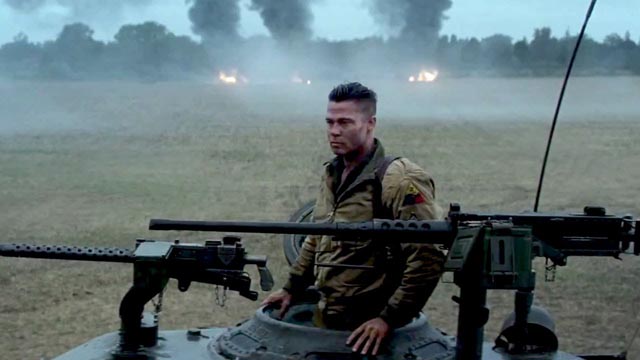
Fury (David Ayer, 2014)
David Ayer’s depiction of life and death for a U.S. tank crew in post-D-day Europe was lauded by a lot of critics for its gritty realism. Its technical credits are fairly impressive, and Shia Lebouef reputedly didn’t take a shower during production so he’d be as dirty and smelly as his character is supposed to look. And yet it seems to me that Fury is shot through with the same kind of heroic fantasy as your average superhero movie, leading to the utterly risible extended climactic battle in which the crew of a disabled tank manages to fight off hundreds if not thousands of crack SS troops. Even though only one crew member survives, the implausibility of this sequence marks the film as just another Hollywood military power fantasy in which U.S. soldiers are unquestionably superior to everyone else simply because they’re American. (Sony/Columbia Pictures Blu-ray packed with deleted/extended scenes and numerous featurettes)
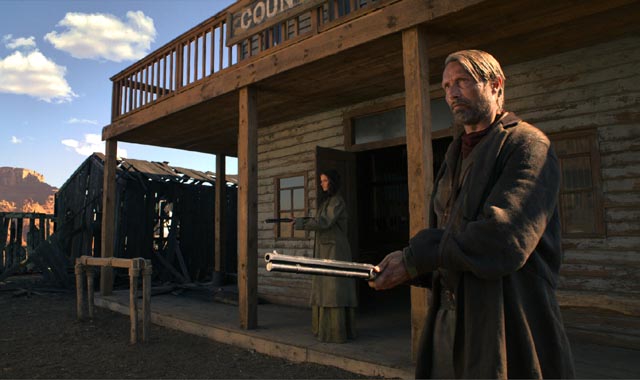
The Salvation (Kristian Levring, 2014)
The western has always attracted the attention of non-American filmmakers who are drawn to the mythic qualities of the frontier narrative. Here, we get a familiar story told from a fresh viewpoint – that of Danish immigrants looking for a new life in the great open spaces of the west. Naturally, those spaces are not as open as promised, already inhabited by some vicious and unsavoury characters. The great Mads Mikkelsen is his usual cool, brooding self as a husband and father who has to embark alone on a mission of vengeance after outlaws kill his family and the townsfolk, fearful for their own lives, won’t help him. With spectacular landscapes shot in South Africa by Jens Schlosser, director Levring creates a kind of brooding nostalgia for a past which was never like the popular myth. (Mongrel Media DVD, behind-the-scenes featurette)
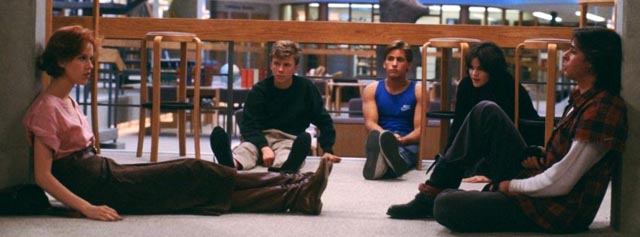
The Breakfast Club (John Hughes, 1985)
In the mood for a nostalgia fix, I picked up a discounted copy of The Breakfast Club, the best and most canny film of John Hughes career. The concept was brilliant in its simplicity: put five young and promising actors together in a room and let them talk, revealing all their teen anxieties and hopes, exposing insecurities, class differences … and eventually uncovering the deep shared sense of identity which transcends all those differences and defines them as a generation poised to assume its rightful place in the world. Sure, those conversations are implausible, but the movie is utopian rather than realistic and the hopefulness it expresses retains a genuine charm, thanks both to Hughes’ excellent writing and direction and to the excellent performances of the then-young cast: Molly Ringwald, Emilio Estevez, Judd Nelson, Ally Sheedy and Anthony Michael Hall. They may not seem like real teens, but you’d like them to be. (Universal Blu-ray with numerous retrospective featurettes and an entertaining commentary track with Nelson and Hall)
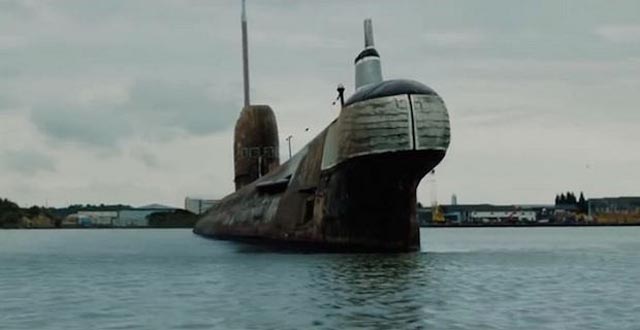
Black Sea (Kevin Macdonald, 2014)
Kevin Macdonald started out as a documentary filmmaker, gradually edging towards drama by starting to incorporate reenactments into documentary stories – particularly effective in the gripping Touching the Void (2003) about the experiences of two mountain climbers in the Peruvian Andes. His subsequent dramatic features have been generally less impressive than the earlier documentaries – The Last King of Scotland (2006), with Forest Whitaker impersonating Ugandan dictator Idi Amin; State of Play, a 2009 re-make of a British TV serial; The Eagle (2011), with Channing Tatum pretending to be a Roman legionnaire in ancient Britain; and a post-apocalyptic teen-lit adaptation, How I Live Now (2013) – so I didn’t have very high hopes when I came across Black Sea in HMV. However, I’ve always been a sucker for submarine movies (why, is a good question, as the idea of actually being inside a sub gives me cold sweats), so I thought I’d give it a try … and I really enjoyed it. The story of a group of discarded deep-sea salvage workers who hear of a submarine lost in the Black Sea towards the end of World War Two, reportedly carrying a fortune in gold, it has pretty much all the cliches you’d expect from the genre – mechanical failures, depth charges, rivets popping when the boat goes too deep, crew members cracking under the strain – but Macdonald and his cast handle them well for a tight, gritty adventure which actually manages to say something about people crushed by the post-2008 economic collapse. This would make an excellent double-bill with Todd Robinson’s underrated Phantom (2013). (e one Blu-ray with a making-of featurette and an excellent nuts-and-bolts commentary by Macdonald)
*
The Andromeda Strain (Robert Wise, 1971)/
Silent Running (Douglas Trumbull, 1972)
It’s hard to believe, but there was once a time when science fiction wasn’t a particularly mainstream genre. Even though SF goes back to the silent days, movies like Aelita (Yakov Protazanov, 1924), Wunder der Schopfung (Hans Walter Kornblum, 1925), Metropolis and Frau im Mond (Fritz Lang, 1927, 1929), Cosmic Voyage (Vasily Zhuravlyov, 1935), and Things to Come (William Cameron Menzies, 1936) were all prestigious productions essentially made in isolation. It was only in the ’50s that SF came to be a recognizable cinematic genre, and even then for the most part it was a bit of an outlier – after some initial prestige productions like The Day the Earth Stood Still, The Thing From Another World, War of the Worlds, and Destination Moon, SF was generally relegated to a cheap B-movie ghetto aimed at a teen audience. The ’60s saw a rise in prestige, particularly with Kubrick’s 2001: A Space Odyssey and Franklin J. Schaffner’s Planet of the Apes, but it was only in the late ’70s with the appearance of Star Wars, Close Encounters of the Third Kind and Alien that the genre actually became the mainstream, constituting one of the greatest sources of box office income for the industry, while managing somewhat unsteadily to span the gap between mindless kids’ entertainment and more sophisticated adult-oriented fare. But in the late ’60s and early ’70s, SF movies tended still to be one-offs, free to some degree from the formulaic constraints imposed by corporate profit expectations.
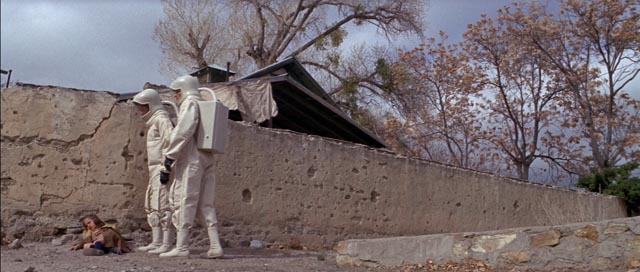
The Andromeda Strain, based on Michael Crichton’s breakthrough novel (he’d previously published a string of minor thrillers), was a kind of throwback to the movies produced by George Pal in the ’50s – science-based, technologically oriented, concerned with procedure rather than action. Faced with a scientific problem, a group of experts work together to come up with a solution. In this case it’s what happens when a space probe returns to Earth carrying a dangerous biological agent. Audiences today (judging by comments on IMDb and Amazon) seem to find the film slow and dull – apart from a chilling opening set in a small New Mexico town where everyone except one old man and a baby have died virtually instantly and the race-against-the-clock climax in which the underground lab’s security system works to prevent one of the scientists from shutting down a nuclear self-destruct mechanism, the long film (131 minutes) focuses on a handful of people looking through microscopes, running deadly tests on caged animals and bickering about the dangers of space exploration and the military implications of the NASA project which brought the organism back home. It’s a movie which asks its audience to find excitement in intellectual work rather physical action, and watching it again on Bu-ray, I still find it as engaging as I did back in 1971. (Universal Blu-ray with a couple of featurettes on the making of the film and author Crichton, both repeated from the old DVD)
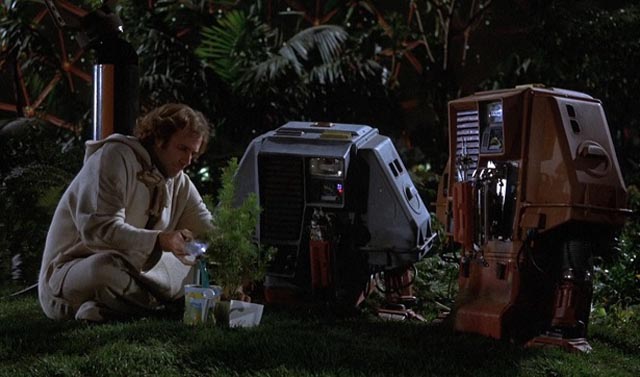
Silent Running is something different. Instead of being Earthbound, it plays out entirely in space. Directed by effects legend Douglas Trumbull, who had been one of the team who created the groundbreaking visuals for 2001, it offers many pleasures despite being almost ridiculously naive and nonsensical. In deep space near Saturn, a fleet of spaceships preserve the last remnants of Earth’s forests in giant geodesic domes. Earth itself is apparently completely barren now (though it’s unclear how anyone manages to live there with no plant or animal life). But the fleet is manned almost entirely by working stiffs who couldn’t care less about their cargo — all, that is, except Freeman Lowell (played large by Bruce Dern with constantly flaring nostrils in his first lead role), ridiculed by his shipmates for his meditating and his obsession with growing and eating his own food while they’re happy with the synthetic sludge dispensed by the ship’s galley. When the order comes to blow up the domes and return home, Lowell flips out, kills the rest of the crew and tries to fly the ship away to save the forest.
None of this really makes any sense other than as a very simplistic ecological parable, but the miniatures are elaborate (if not as convincingly photographed as the ships in 2001) and Trumbull makes good use of a decommissioned aircraft carrier as the ship’s interior. The best thing in the movie, though, is the team of three “drones”, small robots which do all the exterior repair work. These were operated by bilateral amputees who manage to give the non-humanoid designs a great deal of engaging personality; these robots have never been bettered (and were obviously the inspiration for R2-D2). In fact, they have far more personality than any of the humans involved, which is why the one thing that really bugs me about the movie is the fact that Lowell keeps an injured drone with him when he suicidally destroys the ship, leaving the one remaining drone to live entirely alone in the last dome as it flies off into space in hopes of eventually finding a new home. Sure, that injured drone was incapable of doing a lot of work, but it would at least have been company for the other one while it did its chores. It seems like a pretty callous thing to do for a guy who has constantly been professing his reverence for life. (Universal Blu-ray, with several featurettes and a Dern and Trumbull commentary, all carried over from the old DVD)
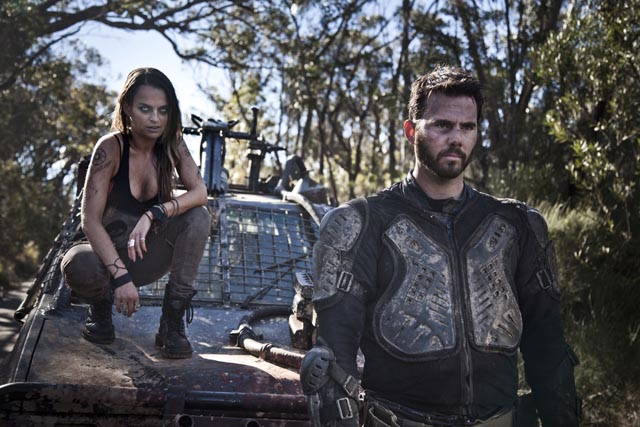
Wyrmwood (Kiah Roache-Turner, 2014)
For years now there’s been a glut of zombie movies on the market so it’s always nice for a fan of this sub-genre to stumble across something with a degree of originality. This low-budget Australian movie fits the bill nicely. Of course there are familiar elements: a handful of characters have to do whatever they can to try to survive when some force from space reanimates the dead, so there are plenty of chase-and-splatter scenes as Barry (Jay Gallagher) crosses country looking for his sister Brooke (Bianca Bradey), picking up various people along the way – and losing a lot of them, too. In story terms, one of the interesting things about Wyrmwood is the way characters we meet and like are as likely to die abruptly as they are to survive. This randomness was imposed by a production schedule which stretched over years, with actors suddenly no longer being available, forcing script rewrites which had to drop people originally intended for larger roles.
The design of the film owes something to Mad Max, with the hero and his companions driving a home-modified vehicle powered by … well, something unexpected, which is one of the movie’s funniest inventions. As for Brooke, she’s been captured by a military unit which imprisons her for experimentation by an obviously insane scientist apparently looking for an antidote to the zombie plague. Unexpectedly, those experiments turn her into a kind of human-zombie hybrid with a psychic link to the undead which proves very useful when Barry finally catches up with her. Cheap, cheerful, funny and gross, Wyrmwood is a real find for the zombie fan. (Anchor Bay Blu-ray/DVD combo edition featuring some deleted scenes, an amusing funding pitch by writer/producer/director brothers Kiah and Tristan Roache-Turner, plus a commentary track by the pair which is a good listen for anyone interested in making a feature with virtually zero resources)
_______________________________________________________________
(1.) One of the interesting bits of background information supplied by Dr. Philip Davey’s commentary on the Signal One region B Blu-ray edition of On the Beach is that Ernest Gold hated the tune, but Kramer fell in love with it and insisted that Gold build his whole score around it – which just goes to show that even big name filmmakers really need to listen to other people’s advice sometimes. The almost excruciating sequence with Peck and Gardner retreating to a picturesque trout stream for some private time only to find themselves surrounded by cheerful “ordinary” Australians who sing the song incessantly day and night apparently wasn’t in the original script (there they really were supposed to be alone), but Kramer added it during production. (return)
Comments